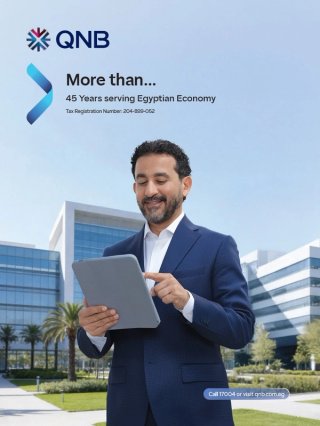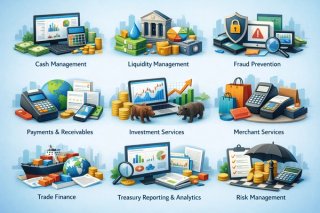How can platform as a service unleash competitive advantage for banks
Published by Gbaf News
Posted on May 12, 2020
5 min readLast updated: January 21, 2026

Published by Gbaf News
Posted on May 12, 2020
5 min readLast updated: January 21, 2026

By Paul Jones, Head of Technology, SAS UK & Ireland
Due to both regulation and practical realities, banks spend much of their time, effort and money on activities that make zero difference to their competitive position. Processing transactions, booking trades and managing compliance for anti-money laundering (AML) and know your customer (KYC) efforts are vital tasks for any bank, but they make almost no contribution to differentiating a bank from its competitors.
According to McKinsey’s 2019 Global Banking Review, outsourcing these activities presents a huge opportunity for optimisation: “By transferring non-differentiating activities to modular industry utilities, banks could potentially improve return on equity by 60 to 100 basis points.”
Besides the immediate financial benefits, if banks can optimise their resources to spend more time focusing on developing new digital services and delivering an outstanding customer experience, it’s a clear win-win in terms of both saving costs and growing the business.
Dissecting your differentiators
But how far can we stretch the idea of “non-differentiating activities”? Is risk management a differentiator for banks? How about fraud detection? Or even marketing? I think the answer is it depends. Within each of those three functions, there are areas where top banks can develop competencies that give them a real edge over the competition. If you have the best risk models, you’re likely to make more advantageous trades than your counterparties. If you’re the smartest at catching fraudsters, they’ll focus on weaker prey. And if you understand your customers better than your competitors do, you’re more likely to keep them.
In fact, McKinsey estimates that the opportunities to enhance capabilities such as risk, fraud detection and marketing through artificial intelligence and machine learning could deliver up to $250 billion in value across the banking sector.
In each case, the data scientists who devise your predictive models for calculating exposure, detecting anomalies and segmenting customers are the key to your success. Their skills put them at the pinnacle of all your employees in terms of creating real business value. But data science isn’t a standalone activity, and there are other elements of risk, fraud and marketing operations that don’t add much competitive value – what we might call the “platform” elements.
Data science as team sport
On the scale at which most banks operate, data science isn’t just about the individual brilliance of your PhDs. It becomes much more of a team sport – and like any professional sport, it quickly develops its own back-office requirements. You need software, databases, development tools, infrastructure, processes, data governance frameworks, monitoring and analytics, auditing and compliance capabilities, and business continuity/disaster recovery strategies. That’s what I mean by “platform” – all the basic components you need to run a successful enterprise-scale data science programme and get innovation into production.
The good news is that you can absolutely outsource your marketing, fraud and risk analytics platforms, just like any other non-differentiating activity. Running analytics and data science platforms at scale is known to be a tricky problem, even for tech giants like Google, but with the right combination of technology, processes and expertise, it’s perfectly possible to let an expert partner take care of the day-to-day operations.
What to look for in an outsourced platform
When you are assessing analytics Platform as a Service (PaaS) offerings, there are a few key things to look for. First, your partner should provide a fully managed cloud infrastructure that enables quick onboarding and makes it easy to ramp up new projects and close down old ones.
McKinsey estimates that the opportunities to enhance capabilities such as risk, fraud detection and marketing through artificial intelligence could deliver up to $250 billion in value across the banking sector.
Second, your partner should have the right expertise to take responsibility for handling all day-to-day system administration and model management duties, as well as batch analytics tasks such as regulatory calculations. Offloading this routine work will reduce costs for the bank and also slim down the risk profile because your partner will keep the platform fully up to date with the latest security updates and patches.
A good PaaS offering will also include process automation to increase throughput for the data science pipeline. This is a well-known issue in the industry. For example, Gartner estimates that over 50% of models don’t make it to production, and a recent survey by SAS showed that it takes organisations on average three months to deploy a new model.
Speed production with DevOps
You should look for a PaaS with built-in DevOps procedures that help to accelerate deployment to a fraction of that time while maintaining rigorous quality controls. The ability to put models into production more quickly will make you much more agile – so you can respond more quickly to emerging market risks, counter new types of fraud, and adopt the latest artificial intelligence and machine learning (AI/ML) techniques to support your marketing campaigns.
Critically, any PaaS contract should guarantee that your data and models remain your intellectual property and that you have complete control of where your data is stored and how it is used. With the right separation of duties between you and your PaaS provider, your data science team can focus on the valuable, exciting aspects of model design and training, while your partner handles all the mundane operational work around deployment, data processing and governance.
We’re working with banks across Europe to provide exactly this type of PaaS for marketing, fraud and risk analytics. If you’re interested in how to help banks drive digital transformation with cloud-based analytics, please read my previous blog post here.
Explore more articles in the Banking category











